Selecting the Right Reciprocating Air Compressor for Your Needs

Reciprocating air compressors, also known as piston air compressors, are widely used across industries due to their versatility and efficiency. Reciprocating air compressors use pistons to compress air, offering advantages such as better oil control, cooling, and easy maintenance. They are suitable for applications requiring lower airflow and pressure compared to rotary screw compressors. This blog aims to guide you in selecting the right reciprocating air compressor for your needs. We will discuss different options based on features, benefits, and advantages.
Types of Reciprocating Air Compressor
There are two main types of reciprocating compressors: single-stage and two-stage reciprocating compressors. Both have their benefits.
Single-Stage Reciprocating Air Compressors
Single-stage reciprocating air compressors provide better oil control and cooling. They make less noise, offer mobility, and are easy to maintain. They are most suited for small-scale projects, woodworking, and metalworking.
Two-Stage Reciprocating Air Compressors
Two-stage reciprocating compressors provide a higher pressure output and energy efficiency in comparison to single-stage compressors. They are for compressed air applications with intermittent compressed air needs, and a higher pressure and power compared to a single-stage air compressor. The ELGi LD Series 2-Stage reciprocating air compressors offer a high efficiency. They work less to compress air to a given pressure, which means your operating costs are lower. The intercooler stage of the two-stage compression creates less chance of overheating, which in turn means more uptime and better productivity.
Assess Your Needs
Before selecting a reciprocating air compressor, it is important to assess your needs. You should understand your requirements based on the type of tools you will power using the compressor. How frequently you will be using them, and the environment in which you will be using the compressor.
Capacity and Pressure
The capacity (m3/min) and the pressure of the air compressor are the two most important specifications. The capacity of an air compressor is typically measured in Cubic Meters per Minute (m3/min). It represents the volume of air the compressor can deliver at a specific pressure. It's recommended to add an extra 25% of the total m3/min requirement to account for potential leaks and future expansion.
The pressure requirement represents the force at which the air is delivered. It is advisable to consider adding approximately 1.4 bar for pressure loss due to factors such as the distance of the compressor to the point of use, pipe size, turning points, dryer, filters, and other considerations.
When selecting a reciprocating air compressor, it's essential to ensure that the compressor's capacity and pressure ratings align with the specific air requirements of the application. It's also advisable to consult a compressed air specialist or the local distributor for assistance in determining the appropriate capacity and pressure requirements for the air compressor.
Power
While power measured in kilowatt is an important specification, it is the result of the required pressure and capacity that you need. When selecting a reciprocating air compressor the required kilowatt is based on the tools and equipment to be powered. Reciprocating Air compressors typically range between 2.2 and 11kW. Higher kilowatt compressors are suitable for more demanding applications.
ELGi offers a range of reciprocating compressors with a power ranging from 2.2 to 11kW.
Electrical Connections
It is very important to consider the electrical requirements of the compressor, such as voltage, phase, and frequency before selecting a reciprocating air compressor. They should match with the electrical supply available at the installation site. You can also consult with a compressed air specialist or your local distributor to help determine the appropriate electrical requirements for the air compressor.
Noise Level
There are certain industrial settings where noise can reach 60-80 dB. Since a reciprocating compressor produces a lot of noise, always check the noise level before purchasing one. ELGi reciprocating compressors are known for their low noise levels, with the LD Series offering an impressive noise level of 74 dB. The EN Series low-noise air compressors are also known for their low noise levels, with a noise level of 61 dB.
It's important to consider noise levels when selecting a low-noise air compressor. Noise can impact the working environment and the well-being of employees.
Tank Size
One should choose the air compressor based on the tank size that can store enough compressed air to meet the air demand of the tools and equipment. A small compressed air tank requires frequent refills and can't function for extended periods. Where hobbyists would require a small, portable compressed air tank, small manufacturing operations would require larger, higher-pressure air compressors with tank sizes ranging from 150-500 liters.
Initial cost and maintenance need
The initial cost of a reciprocating air compressor is typically lower than other types of compressors, making them a more accessible capital investment for smaller shops. However, reciprocating compressors have more moving parts and require more frequent maintenance to maintain optimal performance, including oil changes and filter replacements.
ELGi's reciprocating air compressors are designed to provide optimum efficiency with minimum maintenance requirements.
Conclusion
Selecting the right reciprocating air compressor involves understanding your needs and the specifications of the compressor. By considering factors such as capacity, pressure, power, electrical connections, noise level, and tank size, you can choose a compressor that best suits your needs. ELGi’s range of reciprocating compressors offers a reliable and efficient solution for various applications. They are designed for optimum efficiency while requiring minimum maintenance.
RELATED BLOGS

Compressed air is a critical element in many industrial operations, from powering tools to...
Read More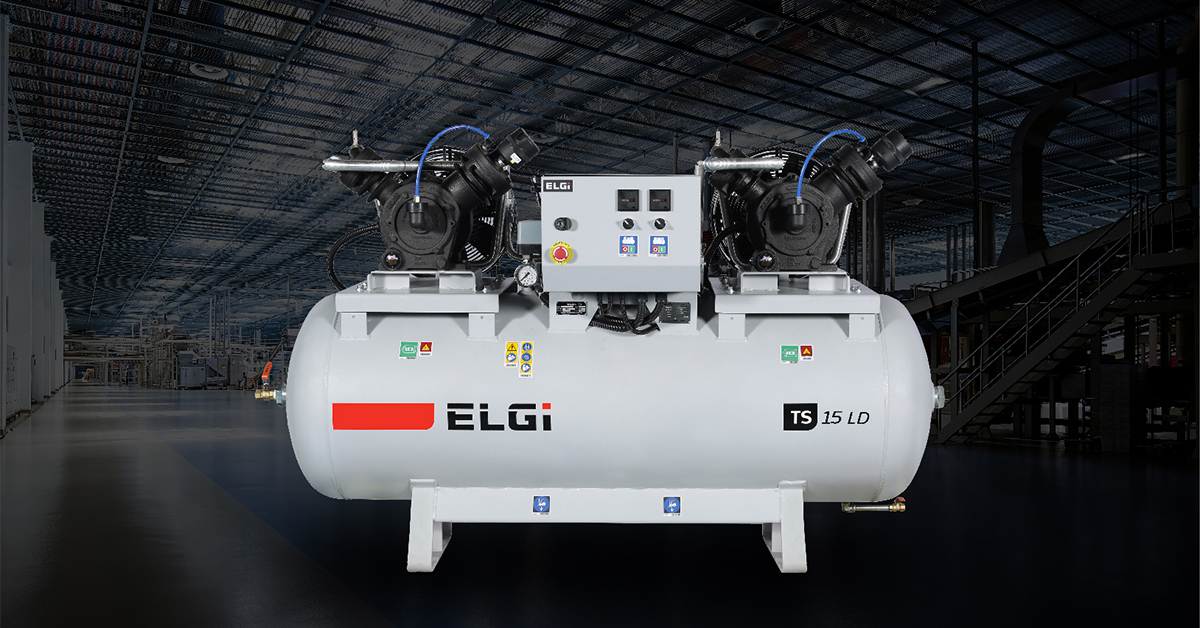
How Oil Lubricated Compressors Work and Their Role in Energy Efficiency Oil lubricated ...
Read More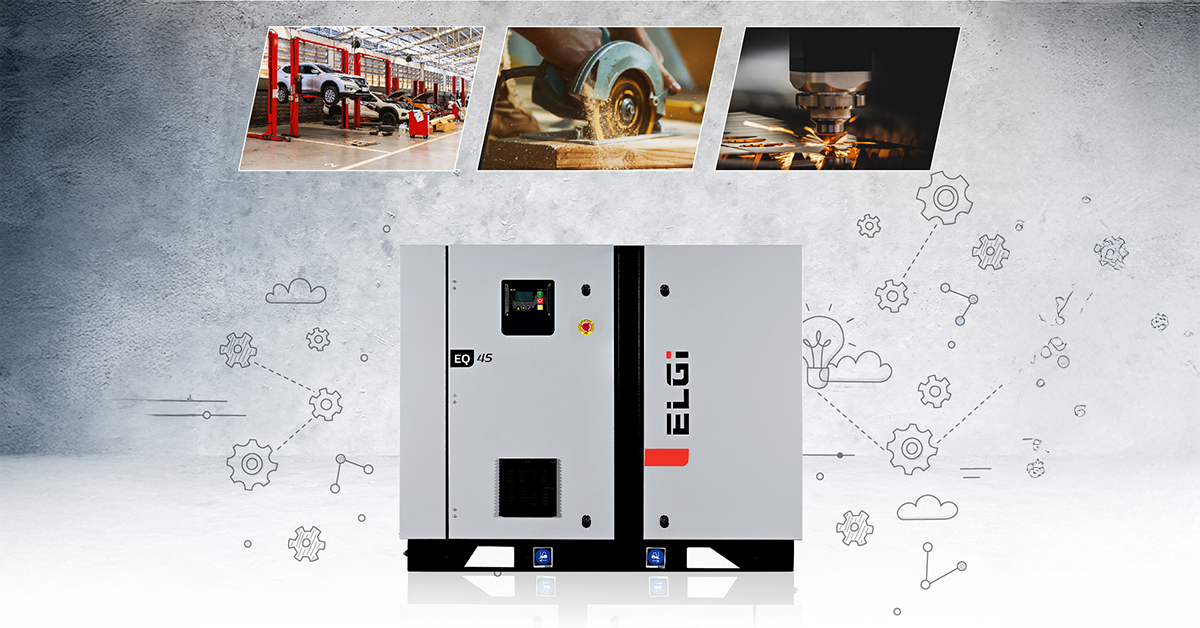
Why the ELGi EN Series is Ideal for Compact Industrial Compressed Air Solutions Busine...
Read More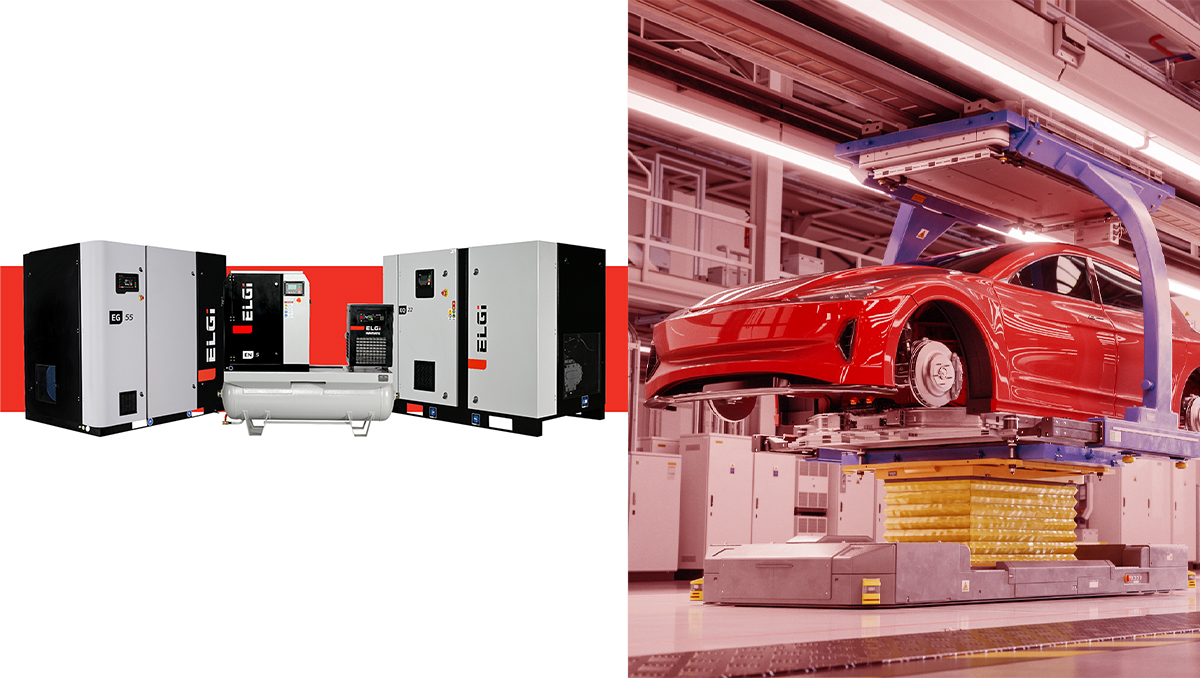
Compressed air is an invaluable resource in the automotive industry, powering everything f...
Read More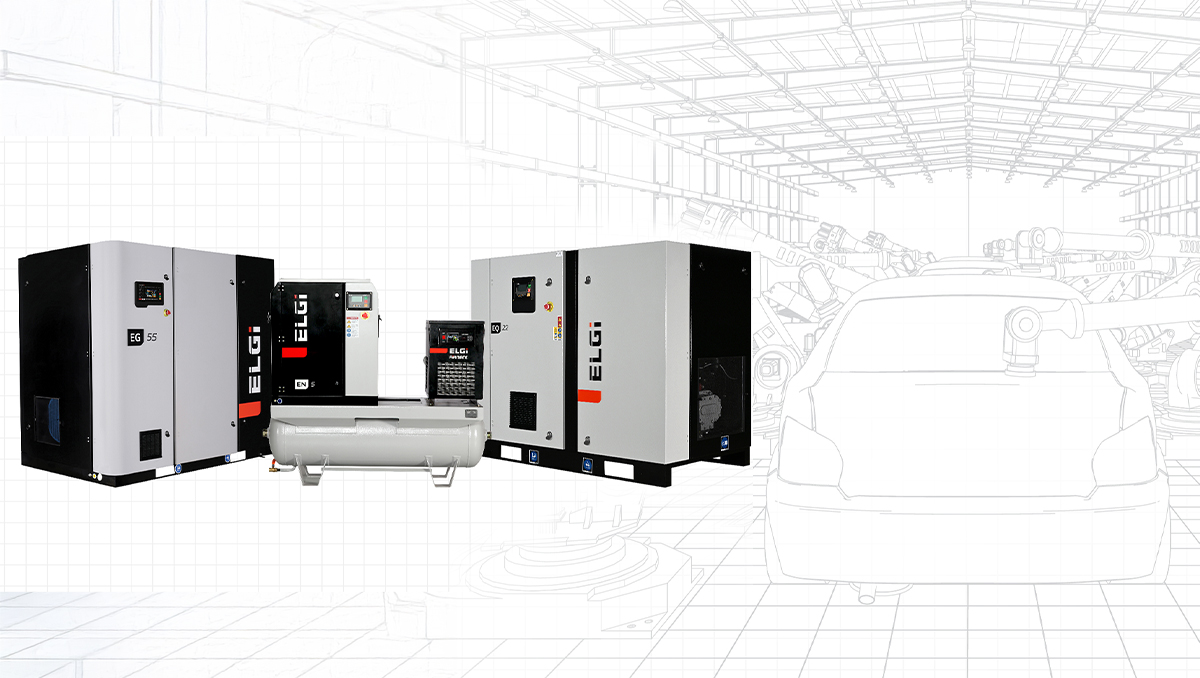
The automotive industry is one of the most dynamic and technology-driven sectors, requirin...
Read More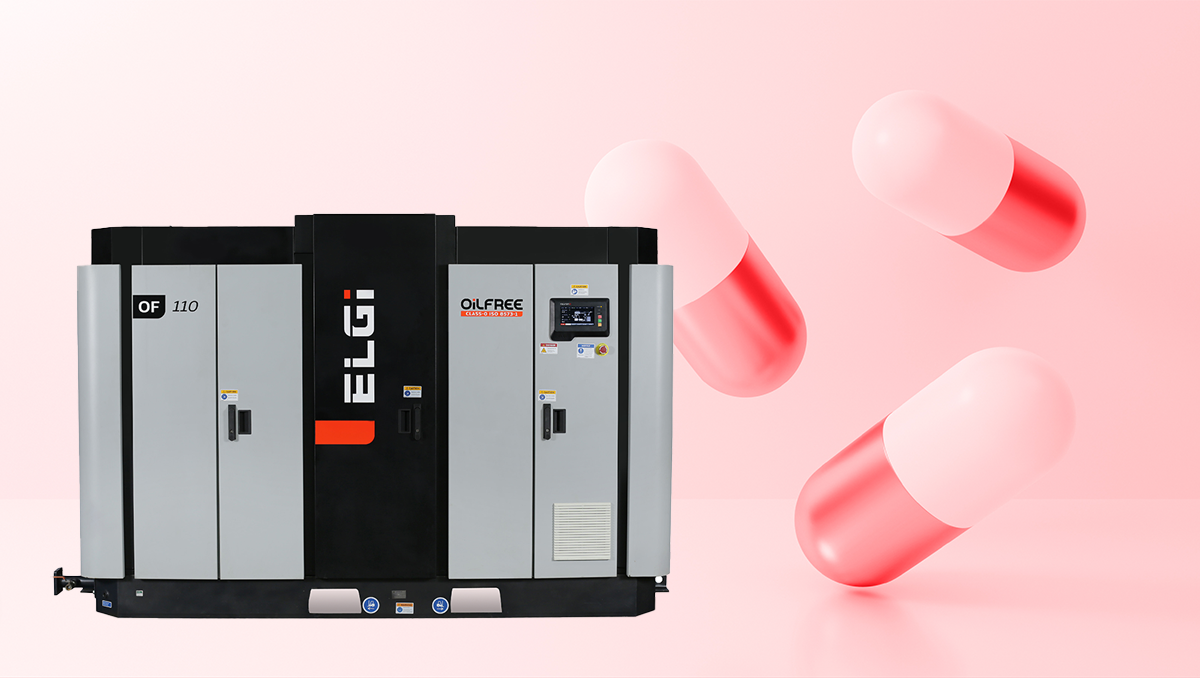
The pharmaceutical industry operates in a realm where precision, purity, and compliance ar...
Read More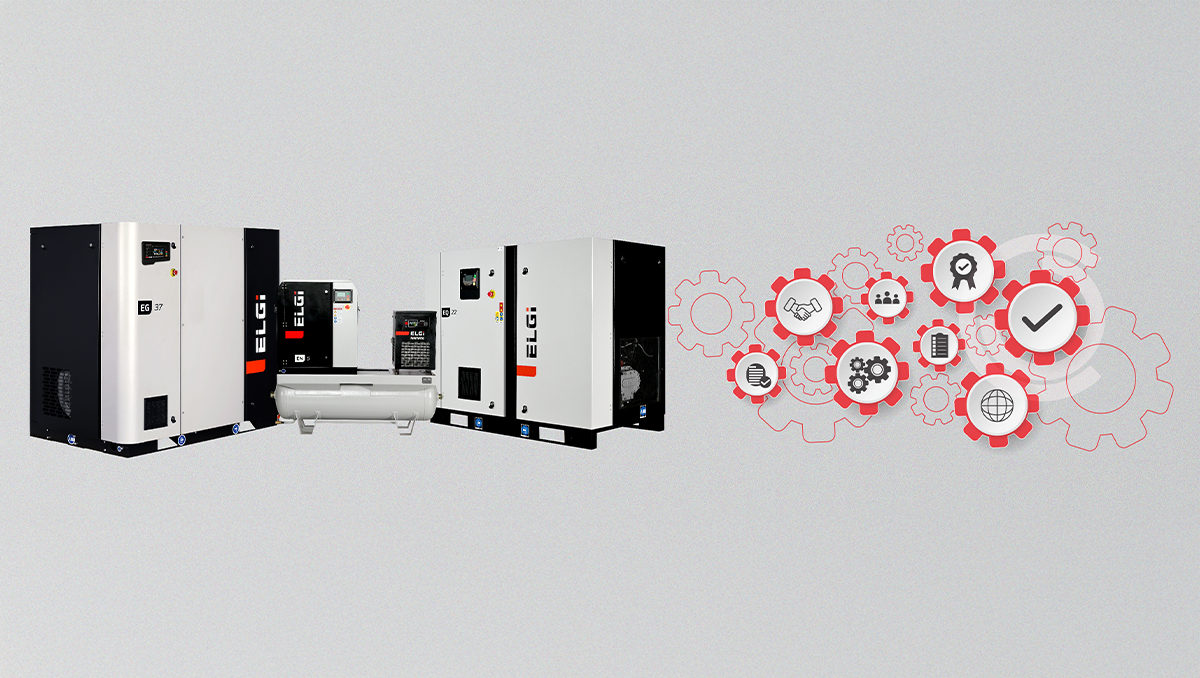
Rotary screw air compressors are essential machines used in many industrial applications a...
Read More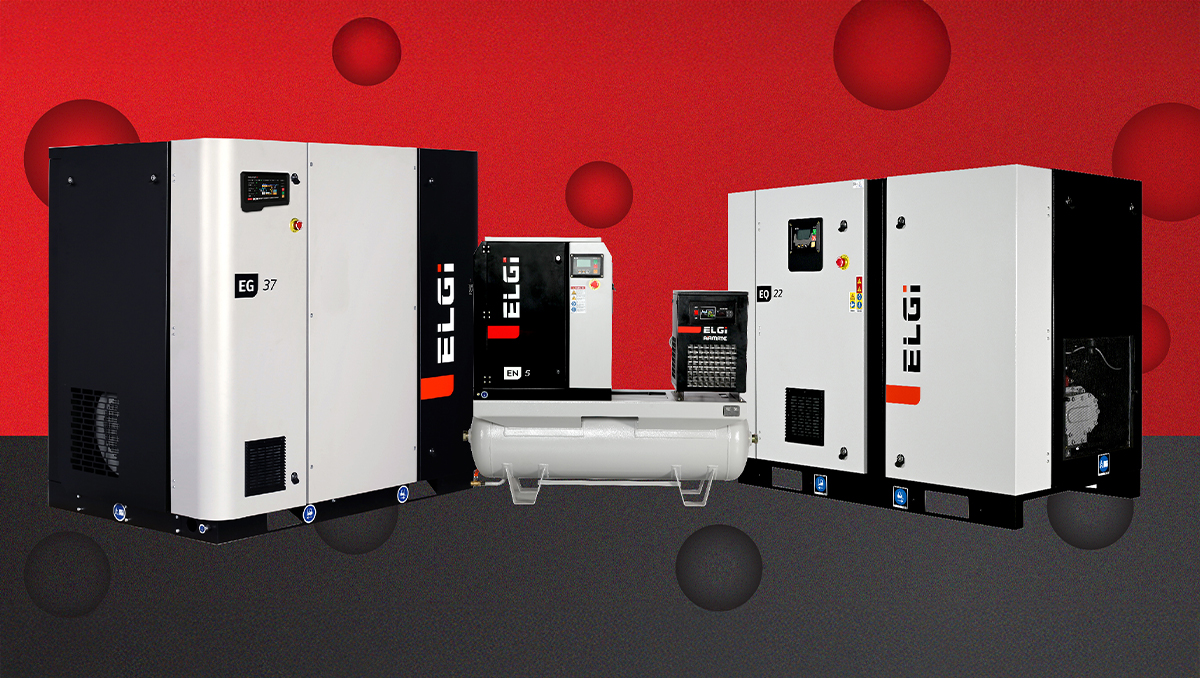
Choosing the right rotary screw compressors is crucial for your industrial operations. In...
Read More
Choosing the right rotary screw compressors is crucial for your industrial operations. In...
Read More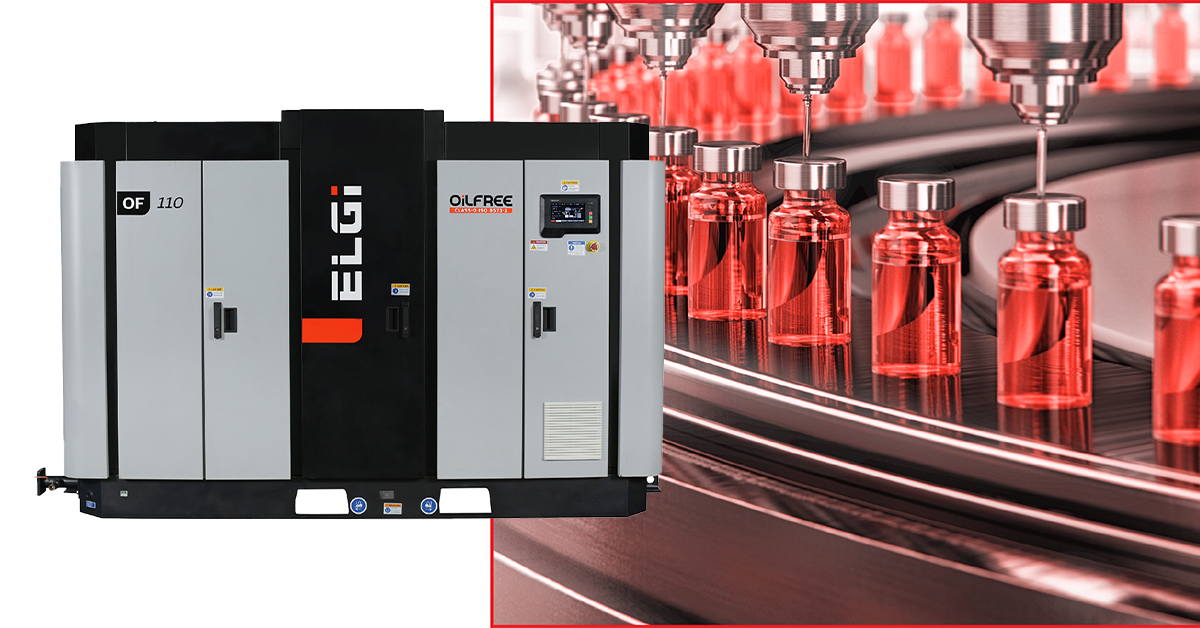
The pharmaceutical industry relies heavily on precision, sterility, and efficiency in ever...
Read MoreBe the first to get updates, learn more and join our explorative world by subscribing to our official compressed air journal.
SUBSCRIBE